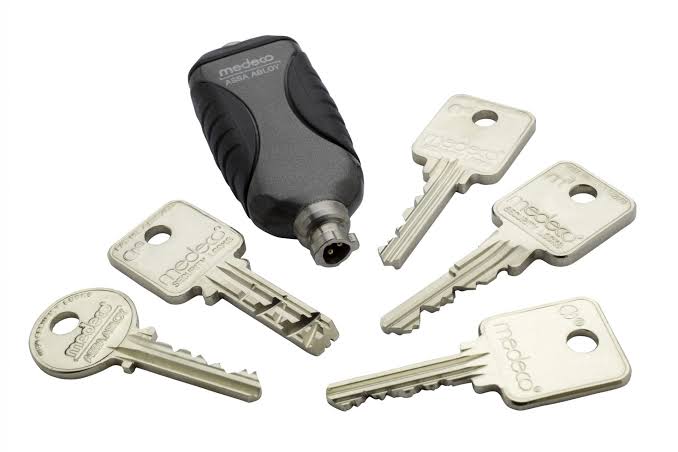Last updated Apr. 18, 2023 by Charles Zemub
You don’t need to land a big contract or get a higher-paying job to improve your finances. Instead, they’re healthy financial habits you can follow or use to get you on track. For many, money management skills are all you need to grow your finances, while others think you have to work extra. However, they’re other important but hidden ways to improve your finances.
Even if it seems your finances are stuck in a terrible place with no way out, there’re several things you can do or ways to find solutions. Here are the nine simple ways to improve your finances right now.
1. Start Tracking your Spendings
This financial task seems complex but is essential in knowing where your money is going and how best to control your finances. Your inability to manage or track your finances will lead to a financial drop-down and cause you to lose a lot. On the other hand, effective tracking of your finances will open your eyes to unhealthy financial habits sabotaging your efforts towards improving your finances.
To track your spending, categorize your expenses in a way that makes sense to you (food, transportation, entertainment, bills, etc.), and at the end of the month, calculate the total amount you’ve spent on the listed expenses. It will become evident in the categories you need to cut back on spending to improve your finances.
You could also use a money management app like MoneyTrack to help you track your spending efficiently. Then, once you’ve discovered the habits or the things causing lapses in your financial life, you can work or make plans to improve.
2. Improve Your Credit Score
Increasing your credit score can help you get lower interest rates on auto loans, credit cards, and mortgages. So if you want to open a new card or are planning to buy a new house someday, improving your credit score will save you thousands of dollars over time.
To begin, you’ll need to pull your credit report. You can do this for free once a year using each of the three main credit bureaus – Experian, Equifax, and TransUnion. Successfully doing this can get a better sense of the history your credit score is revealing: Is there any old, overdue account you’ve forgotten about? Have you missed any payments? Your report will reveal all these to you. It lists all your credit accounts, credit inquiries, how long they’ve existed, and your payment history.
Knowing these will help guide the steps you can take to improve your credit score within a short period. The most important action to take right now is to cut out your bills on time and in full because they account for the largest share of your credit score. If you are tracking your spending, you’ll be able to easily spot the things to cut out to make sure that your bills are available in your budget.
After that, the amount of your debt is the most crucial factor. Of course, the less money you have on credit at a particular time, the better, but credit experts advise you to aim to use no higher than 30 percent of your credit limit. Therefore, if your credit limit over accounts is $10,000, you’ll want to charge no higher than $3,000 at one time.
3. Improve Your Savings
No matter how long it takes, keep building on your savings. Even if your contributions are small, money saved can rescue you from difficult or risky situations. Besides, it’ll save you from borrowing money at high-interest rates, especially if you’re in desperate need of it or when you find yourself unable to sort your bills on time.
You should also engage in general savings contributions to increase your financial security in an emergency or a job loss. You can use automatic contributions like FSCB’s pocket change to improve this fund and strengthen the habit of putting away money. Start saving from small amounts and ensure you continue improving over time.
If you find it difficult to remove extra money from your paycheck to save, try doing extra jobs or side hustles to complement. For example, you can try online part-time jobs like social media management, freelance writing, blogging, etc., which can fetch you decent pay to put in your savings. Otherwise, go for other offline part-time jobs like takeout delivery, selling books, or dog-walking.
4. Set a Realistic Monthly Budget.
Tracking your monthly spending will help you to set an effective budget. Your budget shouldn’t be any kind, but the one you’re sure you can keep. There’s no use creating a strict budget or one you’ll find hard to stick to, such as not paying a TV subscription when your hubby is watching good movies. Instead, set a budget that suits your lifestyle and spending habits.
Budgeting isn’t a means to deprive you of your needs; instead, it’s a way to encourage better finances. However, you should try as much as possible to meet your monthly budget. That’s the best way to work towards effective money management.
You can use numerous approaches to create a personal budget, but all include making projections for expenses and income. The expenses and income categories to include in your budget depends on your present situation, which can change over time. Once you’ve made the appropriate estimations, subtract your expenses from your income.
If you have money left over, it is a surplus you can decide to spend, save or invest. However, suppose your expenses exceed your income. In that case, you’ll have to adjust your budget by improving your income generation (adding extra hours at work or going for a side hustle) or reducing your expenses.
5. Manage your Lifestyle Inflation
As we advance in our careers and earn higher pay, there are tendencies of a corresponding increase in our spending – a phenomenon termed “lifestyle inflation.” Most people will spend more money if they have extra to spend. However, this lifestyle is unhealthy, especially if you’re working to improve your finances today.
Even if you can sort out your expenses, lifestyle inflation can be detrimental in the long run because it minimizes your chances of building wealth. This is because every extra dollar you spend now amounts to less money later, especially during retirement. So your higher disposable income today isn’t a guarantee of higher income in the future.
As your professional and personal life evolve, spending increases naturally. For instance, as your family grows, you might need to purchase a new home with more bedrooms, or if you get a new position at work, you might need to upgrade your wardrobe to fit in. In addition, the more you grow in life, the more your responsibility increases, and the need for money also increases.
Therefore, as you enter different phases in life, re-evaluate your monthly budget so that it can reflect the right situation in your life. Similarly, when planning a list of your expenses, examine the cost you genuinely need and which you can go without. With proper planning, things will automatically fall into place to improve your financial life.
6. Build an Emergency Fund
As the name implies, an emergency fund is a money set aside for emergency purposes. The fund is primarily to help you pay for expenses that aren’t usually available in your budget. These expenses include unexpected spending such as hospital bills, car repairs, or an emergency visit to the dentist. Likewise, it can help sort out your regular costs if your income is interrupted.
Although traditionally, it’s advised to save three to six months’ living expenses in an emergency fund, in reality, unfortunately, the amount is often isn’t enough to cover high costs or sort a loss in income. Today, we live in an unpredictable economic environment such that most people need to plan to save at least six months’ amount of living expenses or more if possible.
It is also important to note that establishing an emergency fund is an ongoing process. There’s a high possibility that you may need it immediately for something as soon as it is funded. Therefore, instead of feeling discouraged, be contented that you’re financially ready and start growing the fund again.
7. Take control over your Finances

You need to constantly remind yourself that you’re the owner of your finances. Don’t allow your impulse to mismanage your funds to control you. There are degrees and programs to manage your finances. However, you may enter a complicated situation when dealing with your finances without adequate planning.
As earlier stated, studying financial planning will help you to be in control of your finances and other money management skills. Otherwise, you can bank on your conscience when it comes to spending. So be intentional about improving your finances and strive to stick to your budget at all costs.
In addition, there are numerous books out there on taking charge of your finances with topics on how to get out of debt, how to build an investment portfolio, and so on. Books on improving finances offer a great way to change your approach to money management.
Similarly, you can purchase used financial books online or read them for free at your local library to improve your savings. Finally, consider audiobooks if you’d rather receive the advice by ear.
8. Reduce Monthly Bills
One of the simple ways to improve your finances is to cut your monthly expenses. There are easy ways to do this and balance the scale of your earnings and spending. While reducing certain fixed expenses like a car payment or rent may be challenging, you can work on reducing variable costs like entertainment or clothing by thinking frugally and being flexible.
For example, you can reduce electricity consumption to help lower your utility costs, buy food at a discount in bulk stores, or choose different providers for your life or home insurance. Whichever you choose, ensure you’re on the right path to reducing your bill to improve your finances.
9. Set Realistic Financial Goals
Planning is essential in achieving any desired goal, and taking the time to set your financial goals will go a long way in improving your finances. However, if you don’t have a well-articulated financial plan to chase, you may find it challenging to motivate yourself to invest or save each month.
Furthermore, your financial goals must be realistic, something that can be actualized. For instance, don’t set a plan to pay off $50,000 in debt in a single year, whereas your salary is only $40,000. Setting unrealistic goals can cause you to fail, and when you fail, you may be discouraged from making such healthy financial decisions in the future.
Finally, monitor your goals over time to know much you have accomplished. They’re tools to help you track your financial goals and let you evaluate your progress. These tools can also help you stay on track when trying to accomplish a long-term goal, such as improving your finances.
People Also Ask
What are Two Things You Can Do Immediately to Improve Your Financial Situation?
To improve your finances quickly, the first thing you need to do is to start tracking your money. Knowing where your money is going will help you work on your lapses in unnecessary spending and other unhealthy financial habits. Secondly, you’ll need to get an extra source of income generation. Look for part-time jobs to supplement your primary job so that you don’t rely solely on a single source of income.
How can I Improve my Finance?
You can improve your finances by following healthy financial habits such as saving, spending wisely, budgeting, tracking your finances, doing extra jobs, getting multiple sources of income, etc. Other great ways to improve your finances include setting realistic financial goals, building an emergency fund, taking control of your finances, and investing on renowned investment platforms. Additionally, you’ll need to be intentional while chasing your goal to improve your finances. For example, you’ll need to have a change in your lifestyle – changes in areas where you feel are healthy for your finances, like living above your paycheck, eating out, or not sticking to your budget.
Why are my Finances not Improving?
There are important guidelines to follow to improve your finances. There isn’t an improvement in your financial life, probably because you didn’t stick to these financial guidelines. Some financial guidelines for improving your finances include setting realistic budgets, saving, creating emergency funds, setting financial goals, and investing.
What Steps Can You Take Today to Improve Your Financial Status?
Start by evaluating and monitoring your income and expenses – lookout for unhealthy financial habits that are causing you to lose on improving your finances and work towards improvement. Then create a realistic monthly budget to cut off unnecessary spending. After estimating your monthly budget, save the rest of the money on your savings account, or better still, invest it. Lastly, you can do extra jobs to help you supplement your income and improve your financial status.
Frequently Asked Questions
What is the 50 30 20 Budget Rule?
The 50-30-20 budget rule is an American concept that explains how to save money and budget your money smartly. The rule states that after taxes, you should divide your income into 50% on needs – 30% on wants – and 20% on settling your debt or setting aside emergency funds.
What are the Five Foundations?
The Five Foundations are steps for beginners to establish and maintain financial peace. The steps are necessary for building a healthy economic life. The five foundations in order are as follows;
1. Save a $500 emergency fund.
2. Get out of debt.
3. Pay cash for your car.
4. Pay cash for college.
5. Build wealth and give.
How Much Savings Should I Have at 40?
Most financial experts recommend that at 40, you should have retirement savings equivalent to thrice your annual salary or more. For example, if you earn $50,000 yearly, your average savings at age 40 will be $150,000. But the general guideline states that you should have saved at least $175,000 if you earn an average salary.
How do You Build and Give Wealth?
To build wealth, you need to start by making a financial plan – a realistic roadmap to follow in improving your finances. Your goal should include having a realistic budget, building an emergency fund, managing debt, and increasing your income generation. Finally, always automate your finances and track your earnings and spending.
Should You Pay Off all Debt Before Saving?
It is advisable to pay off all your debt before saving. Living a debt-free life will help you to remain focused on saving, and then you can save by contributing a decent amount to build your net worth quickly. However, try to strike a balance if you still need to save while servicing your debt. Save more and pay less for your debt. Whatever you do, do not let settling your debt deprive you of healthy financial habits like saving.







